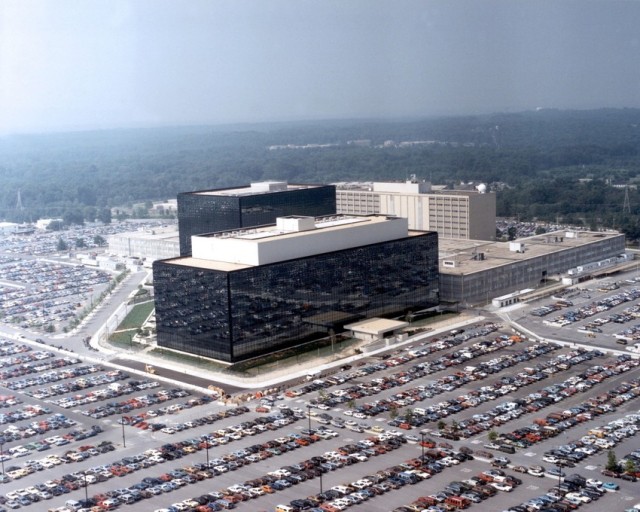ProPublica and The New York Times published a report Sunday that sheds new light on the vast reach of the National Security Agency’s Internet surveillance efforts following the Sept. 11, 2001, terror attack on the United States — and on the apparently enthusiastic cooperation of telecom giant AT&T in the intelligence effort.
The Times headlines the report, based on information mined from the trove of documents released by former NSA contractor Edward Snowden, “AT&T Helped U.S. Spy on Internet on a Vast Scale.” ProPublica’s apparently identical story, published online, carries the headline “NSA Spying Relies on AT&T’s ‘Extreme Willingness to Help.'”
Although the NSA documents do not identify AT&T or another prominent cooperator, Verizon, by name, the news organizations said they found a wealth of evidence that linked the companies to NSA spying programs. The report says the companies’ identities were confirmed by unnamed former intelligence officials.
The story also says that AT&T has apparently handed over data from other Internet service providers and telecoms that use its networks.
Here’s how the report summarizes how the companies’ cooperation fits into the NSA’s surveillance efforts:
The companies’ sorting of data has allowed the N.S.A. to bring different surveillance powers to bear. Targeting someone on American soil requires a court order under the Foreign Intelligence Surveillance Act. When a foreigner abroad is communicating with an American, that law permits the government to target that foreigner without a warrant. When foreigners are messaging other foreigners, that law does not apply and the government can collect such emails in bulk without targeting anyone.
AT&T’s provision of foreign-to-foreign traffic has been particularly important to the N.S.A. because large amounts of the world’s Internet communications travel across American cables. AT&T provided access to the contents of transiting email traffic for years before Verizon began doing so in March 2013, the documents show. They say AT&T gave the N.S.A. access to “massive amounts of data,” and by 2013 the program was processing 60 million foreign-to-foreign emails a day.
Because domestic wiretapping laws do not cover foreign-to-foreign emails, the companies have provided them voluntarily, not in response to court orders, intelligence officials said. But it is not clear whether that remains the case after the post-Snowden upheavals.
“We do not voluntarily provide information to any investigating authorities other than if a person’s life is in danger and time is of the essence,” Brad Burns, an AT&T spokesman, said. He declined to elaborate.
Here’s the Associated Press distillation of the Times/ProPublica report:

